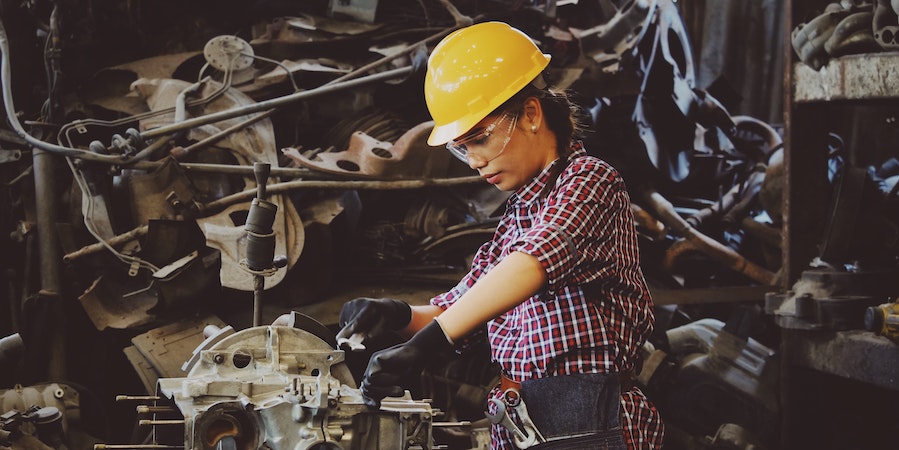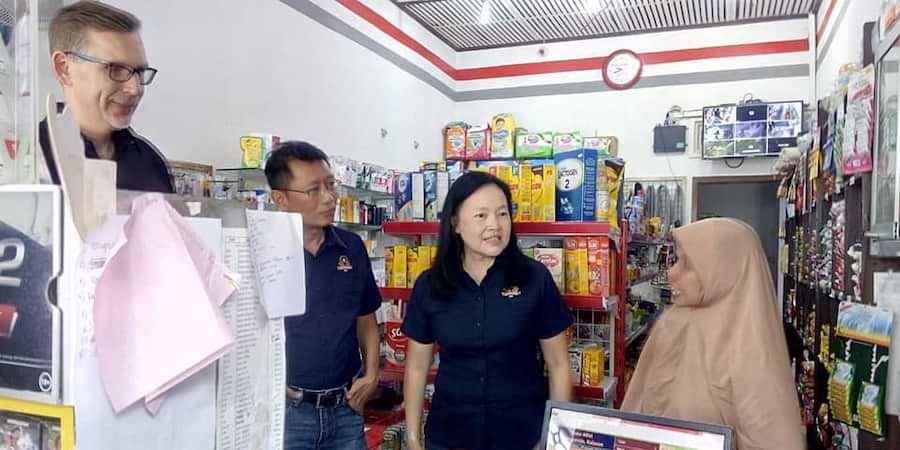
The Success of Digiserve by Telkom Indonesia in Implementing Flexible Work Arrangements
December 24, 2023
Female Leaders in FWD Insurance Supports Each Other to Build An Organizational Culture That Values Diversity and Inclusion
December 24, 2023Photo by Chevanon Photography from Pexels
The existence of social norms stating that men are more suitable to work in the steel and gas industry makes Tira Austenite has a challenge in attracting female workers. This social norm influences Tira Austenite’s practice of advertising job roles, where men are prioritized for field work while women for administrative work so that the ratio of male workers is higher and the change of position in management is lower. Afterward, Tira Austenite realized that if this cycle continued, the gender gap would persist in their industry.
Therefore, Tira Austenite began to focus on improving the system and empowering the existing female talent pool in the company to break this cycle. In 2017, a key opportunity arose when some of the senior male staff members were about to take retirement. The Human Resources (HR) Department identified several potential female candidates and promoted them to replace them in senior positions, including branch managers.
Furthermore, Tira Austenite took the Economic Dividends for Gender Equality (EDGE) certification process with the help of IBCWE. This subsidiary of the Sintesa Group is EDGE certified at Assess Level (the first of a total of three levels) and is committed to the 11 proposed actions, including eight actions related to human resources. This process helps raise awareness about the importance of gender equality in the workplace and in leadership also enhances Tira Austenite policies and practices to support workplace gender equality.
“Earlier, we treated male and female employees equally in recruitment and promotion regardless of their gender. Now, we are more systematic [in using separate data] to monitor and develop our talent,” said a member of the HR team.
With technical assistance from IBCWE, Tira Austenite implemented three main activities to promote women’s leadership within the company, namely revising the Standard Operating Procedure (SOP) related to human resource management to provide equal opportunities and access for male and female employees and reduce potential gender bias, providing training for employees to improve their skills in the professional world and increasing their awareness of gender issues in the workplace, and monitoring performance data separately by gender to understand performance patterns and analyze women’s performance and quality.
Tira Austenite has made progress in addressing the gender gap in their male-dominated workforce through concrete steps being implemented. In 2019, the number of women in leadership increased to 13 women or 25 percent from the previous 7 women or 11 percent in 2017.
“There is a greater awareness of the importance of workplace gender equality among managers,” said the Senior HR Manager.
In 2020, two of Tira Austenite’s 11 branches were led by women and both ranked third and fourth in sales recap. A member of the HR team stated that Tira Austenite learned to see female employees not only able to work in the cost-centered division (office), but when challenged, they can also work in the profit-centered division.
Tira Austenite has also succeeded in eliminating gender preferences in the recruitment process and rewarding employees based on their abilities and work quality, not gender. One female manager stated that if you have a leader who thinks women are not capable, it will be difficult [to grow professionally], whereas Tira Austenite’s leadership does not have that view of women.
The process of improving gender equality in Tira Austenite’s workplace is still underway. There are three things that need to be improved to strengthen this practice, namely continuous communication (both internally and externally) about women’s contributions and their value in the workplace, consistent implementation of recruitment and selection policies, flexible work arrangements, and increasing parental leave rights for men to provide opportunities for male employees to share a more equal role in household tasks.
Read the full case study here.
23 Februari 2022
Tiara Tri Hapsari





